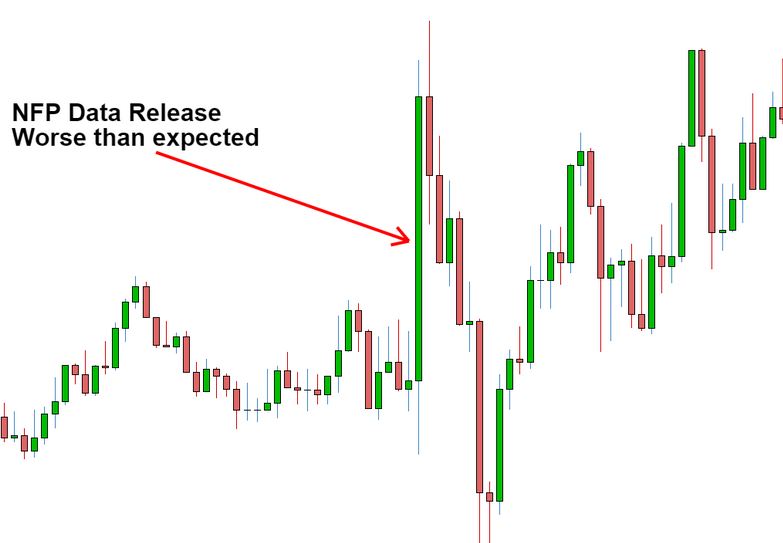The United States Bureau of Labor Statistics (BLS) releases the Non-Farm Payroll (NFP) data for the previous month on the first Friday of every month. Traders can determine their trading strategy according to their NFP strategy, making this day an important day in the financial markets.
Non-farm payroll report data can be very challenging to read, understand, and incorporate into the trading strategy of new forex traders.

Top strategies in NFP trading
The NFP announcement is closely watched by thousands of investors from all walks of life, so any change in non-farm employment leads to a price change, either up or down, depending on how close the actual number comes to the forecast.
Indicators and forex traders seeking to profit from their investments use non-farm payrolls to make their decisions.
It is possible to trade the NFP data using several trading techniques. Among the most common strategies are:
Trade before the release of the NFP report
The simple NFP strategy uses breakout strategies since the objective is to scalp the currency markets to make a quick profit.
There is no doubt that non-farm payroll data drive significant price swings due to its incredible volatility. NFP trading economics aren’t for everyone, but taking a close look at price action is an ideal way to learn about NFPs.
Here are the steps traders need to follow if they want to use charts for Trading Day NFPs:
- In the next 15 minutes before the release of NFP economic output data, mark on the charts the low and high points of the last four-hour trading period.
- Buy above the range’s high and place a sell order below the range’s low.
- You should place a secure stop-loss order on the other side of the range for each order.
- Wait until NFP’s initial reaction triggers an order.
- Cancel the pending order after getting the open position size.
- Decide the take profit based on the target price.
Trading the fade
To implement this trading strategy, traders need to initiate trades opposite to the initial release reaction. Planning with steps, waiting for the initial signal, and placing trades based on the results are the key steps of this strategy.
Traders can overreact, enter and leave trades, depending on what data is released, the entry price, and the price target.
If the market stabilizes, traders can assess the size of their positions and determine whether they should reduce their losses or take profits. This activity for short-term trading creates trading opportunities.
Long-term trends work best with NFP trading strategies.
Unemployment numbers often influence long-term trends, and non-farm payrolls determine price movements. It is based on this data that traders will be able to predict whether the month will be bullish or bearish. In addition to custom strategies, traders can use swings to complement their existing strategies. Overall, traders should keep an eye out for false signals.
NFP-affected currency pairs
Numerous currency pairs contain the US dollar as a counter currency or base currency that will be affected by the NFP data.
Several currency pairs are among these: EUR/USD, USD/CAD, GBP/USD, and USD/JPY. The average volatility of the earlier NFP releases should be calculated before initiating a trade, and profit targets should be adjusted accordingly.
An example of an error would be to use the same stop loss for USD/CAD and GBP/USD. As a result of the release of the NFP report, the major currency pairs described above are best to trade following the report’s release.

Bottom line
Any forex trader should be aware of the NFP every month, regardless of their skill level. Any forex trader should be aware of the NFP every month, regardless of their skill level.
When trading, it is also one of the trickiest data to utilize. Long-term analysis positively affects price and market movements, despite its short-term effect. A month’s worth of wage inflation, job growth, and unemployment data are much more valuable than a month’s worth of other data. A month’s worth of wage inflation, job growth, and unemployment data are much more valuable than a month’s worth of other data.


